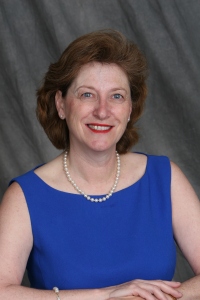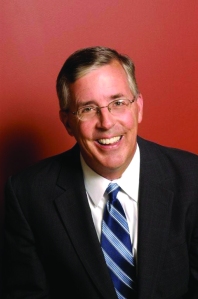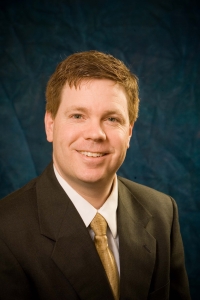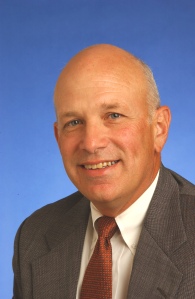A Brooklyn union that sells affordable health insurance to nannies, writers and other freelance workers without job benefits is casting its net out to a larger audience of New Yorkers with the state's lowest rates.
The Freelancers Union has set up a new type of nonprofit health insurance cooperative on New York's health benefit exchange that will begin selling insurance to individuals and small businesses statewide Oct. 1.
The Freelancers co-op, funded by the federal government, has the lowest health insurance rates in nearly every category of coverage on the exchange in Syracuse and every other part of the state.
In Syracuse, for example, the co-op's monthly price for a standard "silver" individual plan that covers on average 70 percent of medical costs is $291.14. That's nearly 31 percent below average in the Syracuse market where six insurers will be selling the same plan at monthly rates as high as $533.23 when the exchange opens for business Oct. 1.
The Freelancers Union has more than 200,000 members, over half of them in New York state. It does not negotiate labor contracts like traditional unions, but it does operate a for-profit health insurance company, Freelancers Insurance Company, that provides insurance to more than 23,000 of the union's members. The co-op it is starting in New York will be a separate nonprofit company called Health Republic Insurance. While the Freelancers Union only sells insurance to freelancer members, the co-op will sell insurance to anyone eligible to buy insurance on the exchange.
Lack of benefits inspired union's founder
The union was established in 2003 by Brooklyn native Sara Horowitz, whose grandfather was the vice president of the International Ladies' Garment Workers' Union. Her inspiration to organize the union came after she landed a job at a Manhattan law firm and discovered she was not an employee, but an independent contractor with no benefits. Her union caters to the economy's rapidly growing hodgepodge of independent workers.
The union was established in 2003 by Brooklyn native Sara Horowitz, whose grandfather was the vice president of the International Ladies' Garment Workers' Union. Her inspiration to organize the union came after she landed a job at a Manhattan law firm and discovered she was not an employee, but an independent contractor with no benefits. Her union caters to the economy's rapidly growing hodgepodge of independent workers.
Horowitz received a genius grant from the MacArthur Foundation in 1999, is a board member of the Federal Reserve Bank of New York and is the author of "The Freelancer's Bible: Everything You Need to Know to Have the Career of Your Dreams - On Your Terms." She also has political connections in Albany and Washington, D.C. The New York Times reported she has close ties to state Assembly Speaker Sheldon Silver and U.S. Senator Kirsten Gillibrand.
The New York health benefit exchange will be a marketplace where consumers can comparison-shop for health insurance, sort of like shopping online for a hotel room or airline ticket. The exchange is part of the federal Affordable Care Act, also known as Obamacare, which requires nearly all Americans to have health insurance by Jan. 1 or face a financial penalty.
Freelancers is a new player in the Syracuse area
The state recently approved rates for 17 insurers planning to sell coverage on the exchange. Six of them - American Progressive, CDPHP HMO, Excellus, Freelancers, MVP and Fidelis -- will operate in the Syracuse area. Freelancers and American Progressive are new to the area.
The state recently approved rates for 17 insurers planning to sell coverage on the exchange. Six of them - American Progressive, CDPHP HMO, Excellus, Freelancers, MVP and Fidelis -- will operate in the Syracuse area. Freelancers and American Progressive are new to the area.
Monthly premiums on the state's new health benefit exchange for a "silver" individual plan in Syracuse that covers an average 70 percent of medical costs. CDPHP HMO: $533.23
American Progressive: $461.39
Excellus: $457.74
MVPHP-HMO: $438.52
New York Fidelis: $341.34
Freelancers: $291.14
Syracuse average: $420.56
Co-ops, a little-known byproduct of Obamacare
Debra Friedman, president and CEO of the new co-op, said its low rates reflect its mission to provide affordable coverage.
"We only have the members' interests at heart," Friedman said. "It's not like we are a public company and we have to meet profit margin expectations of stock analysts."
Freelancers criticized for seeking Obamacare loopholes
A little noticed section of Obamacare called for the creation of "Consumer Operated and Oriented Plans," or co-ops, to increase competition and improve consumer choice on state health exchanges. Congress originally allocated $6 billion for loans to start co-ops, but cut that amount as part of the "fiscal cliff" budget deal at the end of 2012. The government ended up awarding nearly $2 billion in loans to create co-ops in 24 states.
A little noticed section of Obamacare called for the creation of "Consumer Operated and Oriented Plans," or co-ops, to increase competition and improve consumer choice on state health exchanges. Congress originally allocated $6 billion for loans to start co-ops, but cut that amount as part of the "fiscal cliff" budget deal at the end of 2012. The government ended up awarding nearly $2 billion in loans to create co-ops in 24 states.
The Freelancers Union received $174.4 million to set up a co-op in New York and another $167 million to start co-ops in New Jersey and Oregon.
New insurance model attracts praise, criticism
Some analysts are enthusiastic about co-ops because they believe the new plans will foster competition and provide consumers with more affordable choices. Others have questioned the wisdom of spending federal money to start up new health plans to compete against well-established health insurers. Some Republicans in Congress have predicted taxpayers will lose a significant amount of money through the co-op program.
An analysis by the Urban Institute said the combination of federal loans, tax-exempt status and the freedom of not having to appease investors may help co-ops keep prices low. But to succeed over the long term, co-ops will need to attract large numbers of enrollees, the analysis said.
Some analysts are enthusiastic about co-ops because they believe the new plans will foster competition and provide consumers with more affordable choices. Others have questioned the wisdom of spending federal money to start up new health plans to compete against well-established health insurers. Some Republicans in Congress have predicted taxpayers will lose a significant amount of money through the co-op program.
An analysis by the Urban Institute said the combination of federal loans, tax-exempt status and the freedom of not having to appease investors may help co-ops keep prices low. But to succeed over the long term, co-ops will need to attract large numbers of enrollees, the analysis said.
The federal Centers for Medicare & Medicaid Services said the government has loaned money to entities demonstrating a high probability of financial viability. CMS said it will closely monitor co-ops to ensure they are meeting program goals and will be able to repay loans.
Friedman said Freelancers' New York co-op received enough federal funding to cover operating expenses and maintain an adequate financial cushion, required by the state, to protect against losses, for five years.
Under federal law, co-ops must be nonprofit, governed by members and any profit they generate has to be used to lower premiums or improve benefits. More than 51 percent of the New York co-op's board members will be members of the health plan, Friedman said.
Consumers advised not to buy insurance based on price alone
Just because the Freelancers co-op has the lowest prices does not necessarily mean its insurance will be the best deal for all consumers, said Elisabeth Benjamin, co-founder of Health Care for All New York, a statewide coalition of consumer groups advocating for affordable health care.
Just because the Freelancers co-op has the lowest prices does not necessarily mean its insurance will be the best deal for all consumers, said Elisabeth Benjamin, co-founder of Health Care for All New York, a statewide coalition of consumer groups advocating for affordable health care.
Before choosing a plan, consumers will need to find out if their doctors, hospitals and other providers participate in the plan and how much the deductibles and co-pays are, she said. The state has not disclosed those details yet about any of the exchange plans.
When the exchange opens Oct. 1, consumers will be able to look at all those factors and compare plans on an apples-to-apples basis.
Thomas Flynn, a health benefits consultant with Mercer in Rochester, said he expects price to play a big factor on the exchange because many buyers will be young people purchasing health coverage for the first time.
"They are intimately familiar with shopping for and comparing hard drives, processors and computers, but as far as what doctor accepts the insurance, I don't think they are thinking that far ahead yet," Flynn said.
Health plans with low prices may have limited networks
Insurers with low prices often have more limited networks of doctors, hospitals and other providers, said Jennifer Tolbert, director of state health reform at the Kaiser Family Foundation.
Friedman said she could not estimate how many providers in the Syracuse area will be participating with the Freelancers co-op because its service area has not been finalized yet. She said the coop expects to sell coverage in Onondaga and Cayuga counties, but not Oswego and Madison counties. It will use a provider network operated by MagnaCare, which does business in New York and New Jersey.
Friedman predicted the co-op will make a big difference in health care in New York.
"The co-op is an innovative solution to the tremendous challenges individuals and small businesses have had finding accessible and affordable health care," she said.
















